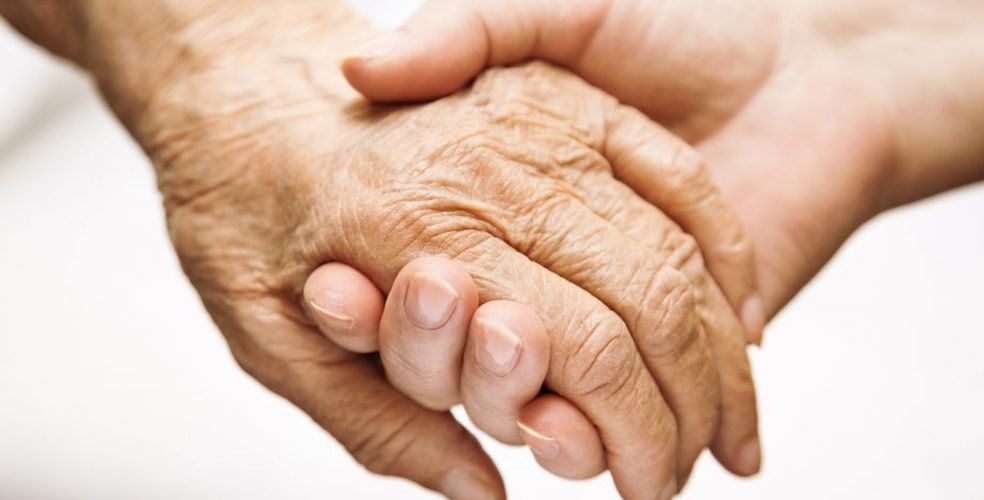When is it Time to Move to Memory Care?

Memory care communities are specifically designed to meet the unique needs of people living with dementia and/or Alzheimer’s. Dementia symptoms can include forgetfulness, delusions, agitation, extreme personality changes, confusion and disorientation that can put you and your loved ones at risk.
Families do all they can to provide compassionate and loving care services, but this can be very taxing for everyone involved. Those who have dementia and/or Alzheimer’s require specialized care from people who are trained to meet their needs.
How do you know when you can no longer provide the care your loved ones need? Here are ten (10) signs that memory care may be the right choice.
1. Do you worry about their safety all the time? Whether your loved one lives alone, with you, or in an assisted living community, if you are constantly worried about his or her safety, it may be time to move to memory care. Memory care communities are designed to meet the specialized needs of people living with dementia or Alzheimer’s and they can keep your loved one safe around the clock.
2. Do you worry about your own safety? Many people experience significant personality changes as dementia progresses and can develop confusion and agitation that leads to violence or threats of violence. If your loved one is showing signs of violence and you are concerned about your own safety or others in your home, it may be best for your loved one to move to memory care. Memory care communities are familiar with these symptoms and know how to help your loved one in a more productive manner.
3. Are you exhausted? Caregiver burnout is real and caring for someone with dementia or Alzheimer’s is emotionally and physically exhausting. Many caregivers let their own health suffer while they are taking care of a loved one and caregiving alone is not a continual position. Memory care communities have these caregivers on staff and can give you rest while still involving you in important care decisions. Many memory care communities are right here in Port Orange.
4. Is your loved one neglecting their finances? If your loved one lives alone, check their mail. Do they have late notices or unpaid bills? Do you find creditor and collection notices? Have an open and honest conversation with your loved one about their financial situation. Neglecting finances is one of the first signs of dementia and can leave your loved one open to financial scams, putting their finances at risk.
5. Is your loved one neglecting their personal hygiene? Unwashed clothing, body odor, unkempt hair, and other personal hygiene issues are another sign that it may be time to move to memory care. It can mean your loved one is forgetting to bathe, forgetting to do the laundry and can be another sign of dementia. Memory care services will include personal care assistance with activities of daily living that help your loved one stay on track. Ormond Beach/Palm Coast has some wonderful memory care communities to choose from.
6. Does your loved one wander? If your loved one wanders in the middle of the night or becomes confused and disoriented, he or she may wander outside. Wandering can be extremely dangerous as your loved one may walk around and not realize where they are, or how to get back home. This can put seniors in dangerous situations and leave them exposed to harsh elements in the winter and summer. Memory care communities are secure and often have enclosed outdoor spaces to keep your loved one from wandering off without a caregiver.
7. Are their living conditions are poor? One sign of early dementia can be hoarding. If you see that your loved one is no longer caring for his or her home, such as mail piling up, food spoiled in the refrigerator, dishes are being left out, and other household messes become uncontrollable, it may be time to move to memory care. Memory care communities include housekeeping and linen services, helping your loved one stay clean and well in their apartment.
8. Is your loved one isolated and lonely? Getting out with a loved one with dementia can be difficult for caregivers and it’s very easy for people with dementia to plummet into isolation and loneliness. These feelings can increase the risk of depression. Memory care communities have active and engaging activities that are specifically designed for people with dementia. Activities are meant to be purposeful and fun while also soothing some of the agitation and anxiety dementia brings. Call to check out the memory care options in Daytona Beach.
9. Your loved one has unexplained physical changes. Changes in your loved one that should make you think it may be time to move are weight changes, changes in posture and mobility problems. Your loved one may be forgetting to eat, or that he or she forgot they already ate and are eating again. Slow movements may be an indicator of confusion or disorientation. Memory care communities will closely monitor your loved one’s nutrition and wellness, making sure that he or she is eating well.
10. You want to restore your relationship with your loved one. Moving your loved one to memory care can help restore your relationship with them so you get to spend time doing the things you love to do together while someone else handles the professional care. Being their caregiver can make you feel detached from them and having someone else care for them gives you the opportunity to be a family member again.
As you can see, there are many things to consider when deciding to move to memory care. You may feel you shouldn’t place your loved one in a community, but believe us, it is the best decision you can make for them and yourself!
You do not have to go it alone! Assisted Living Made Simple is here to guide you along the way and we are FREE!! Call us first! 386-847-2322.




